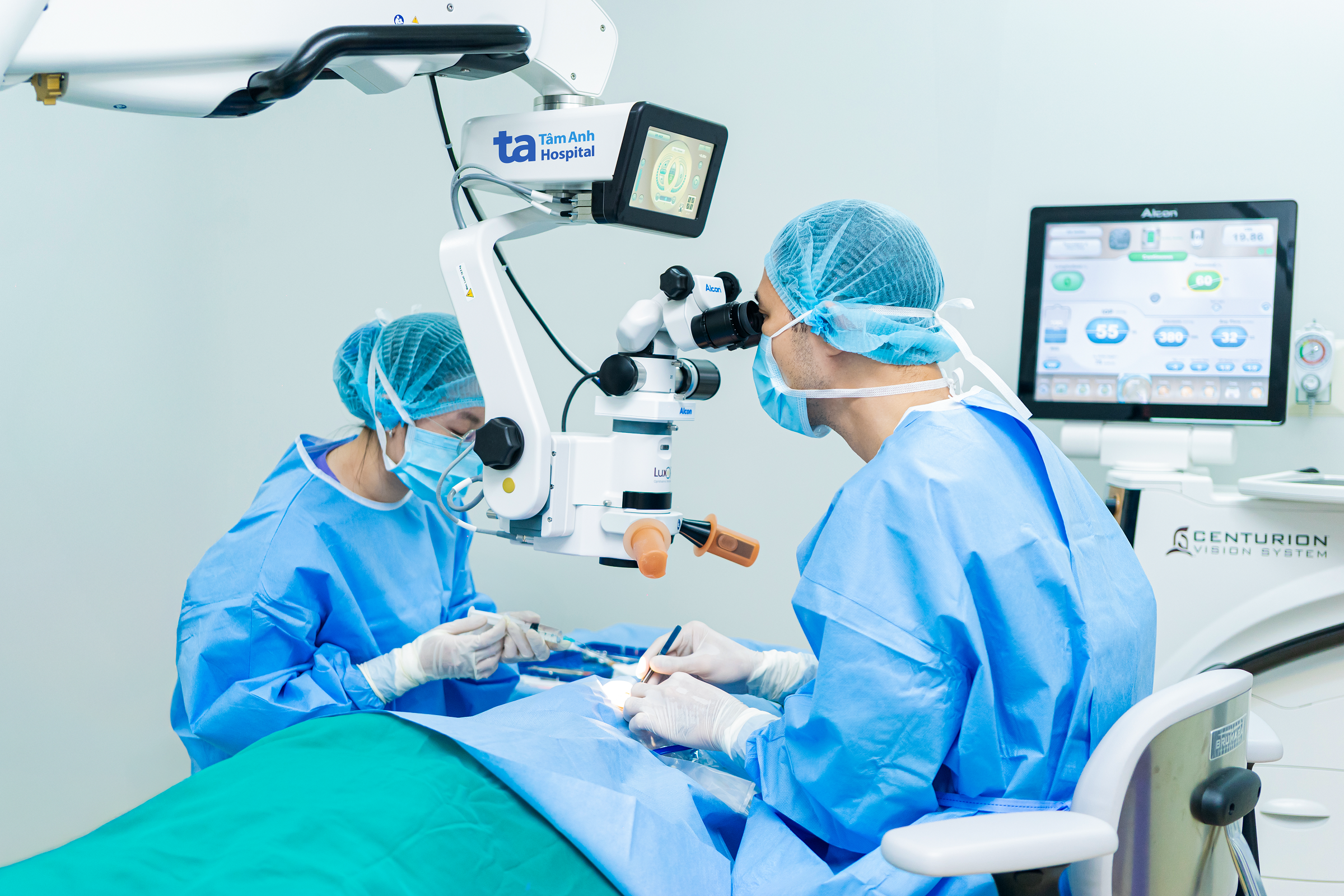Dr. Tang Ngoc Anh, deputy head of the Ophthalmology Department at the High-Tech Eye Center, Tam Anh General Hospital in Ho Chi Minh City, reported that Thanh's left eye had a stage-three cataract, mild ptosis, corneal margin degeneration, and 4/10 vision. She needed cataract surgery to prevent further vision loss and potential blindness. However, she has type 2 diabetes with atopic dermatitis, severe allergies to various foods, and a family history of liver disease, presenting multiple surgical risks.
Dr. Anh assessed the patient's risk of reacting to anesthetics and anti-inflammatory drugs, and developing postoperative inflammation. Her diabetes increased the risk of infection and slowed down the recovery process. If her liver function was affected, poor drug metabolism could lead to toxicity or acute liver damage post-surgery.
A multi-specialty team of doctors from ophthalmology, clinical immunology, endocrinology, and hepatology collaborated to ensure a safe operation. Thanh underwent pre-operative allergy testing with small doses of the medications planned for surgery and post-operative care. This allowed doctors to tailor a specific treatment plan with medications suitable for her, minimizing the risk of anaphylaxis or drug-related complications. Doctors also selected medication to control her blood sugar and ensure stable liver function.
After confirming she was fit for surgery, the team performed phacoemulsification, using ultrasound to break up the cataract, and implanted a monofocal intraocular lens. "Unlike typical phacoemulsification, this case demanded higher technical skill," said Dr. Anh. The team optimized the ultrasound energy to minimize tissue damage. Throughout the procedure, Thanh experienced no allergic reactions or prolonged bleeding.
 |
A doctor performs cataract surgery on Thanh. Photo: Tam Anh General Hospital |
A doctor performs cataract surgery on Thanh. Photo: Tam Anh General Hospital
Ten days post-operation, at her second follow-up appointment, Thanh's left eye vision with glasses reached 7/10. Her cornea healed well, with no inflammation, redness, or irritation. The doctor prescribed non-steroidal anti-inflammatory eye drops, combined with a narrow-spectrum antibiotic with a simple composition and low allergy risk.
Dr. Anh recommends that older adults have regular eye exams every 6 months to detect early signs of cataracts, glaucoma, or macular degeneration. Decreased vision, blurred vision, or glare can be signs of cataracts requiring prompt diagnosis and intervention.
Song Lam
*The patient's name has been changed.
| Readers can submit questions about ophthalmological diseases here for doctors to answer. |












